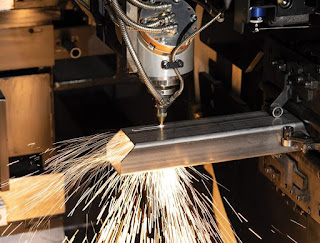Exploring CNC Machine Prices: Factors and Considerations.
Whether a company is small workshop or large manufacturing facility, investing in a Computer Numerical Control (CNC) machine can be a major decision. These devices automate operations and guarantee accuracy, uniformity, and efficiency, revolutionizing production processes. Making an educated choice, however, requires a thorough analysis of a number of variables and considerations when determining CNC machine costs.
Factors Impacting the Cost of CNC Machines:
Type of Machine:
There are many different kinds of CNC machines, including routers, lathes, milling machines, plasma cutters, and more. Every kind has a unique set of characteristics and price ranges in addition to serving various functions. For example, a simple CNC router may be more cheap compared to a multi-axis milling machine with sophisticated capabilities.
Quantity and Size of Machine:
The price of a CNC machine is mostly determined by its size and capacity. Due to their greater material and construction costs, bigger machines that can handle larger workpieces or accommodate numerous workpieces at once tend to be more costly.
Axis Configuration:
CNC machines are classified based on their axis configurations, such as 3-axis, 4-axis, and 5-axis machines. More axes provide for more flexibility and accuracy, but because of their complexity and sophisticated functionality, these machines are often more expensive.
Name and Producer:
For their CNC machines, well-known companies with a track record of excellence and dependability sometimes get greater pricing. While opting for a well-known brand may entail a higher initial investment, it can also offer assurance regarding performance, support, and longevity.
Features and Technology:
CNC machines may come with numerous features and technical developments, such as automated tool changes, coolant systems, high-speed spindles, and integrated software packages. Although they are usually more expensive, machines with sophisticated features may provide higher levels of efficiency and production.
Personalization Choices:
Some manufacturers provide customisation possibilities, enabling clients to modify CNC machines to their unique needs. Customization may result in a system that precisely matches the demands and workflow of the user, possibly improving productivity and return on investment over time, even while it raises the total cost.
Assistance and Assistance:
It's important to take after-sale service and support into account when comparing CNC machine costs. By guaranteeing peak performance and reducing downtime, choosing a supplier that offers full support—installation, training, maintenance, and technical help—may be able to offset a higher initial cost.
In summary:
A CNC machine's pricing is determined by taking into account a number of variables, such as the machine's type, size, configuration, brand, features, customizability possibilities, and service offers. While initial expenditures are significant, it's also critical to evaluate the investment's long-term worth, dependability, and support. Through a comprehensive assessment of these variables, companies may make well-informed choices that conform to their operational and financial restrictions, eventually optimizing the advantages of CNC technology in their production processes.


.jpg)

Comments
Post a Comment